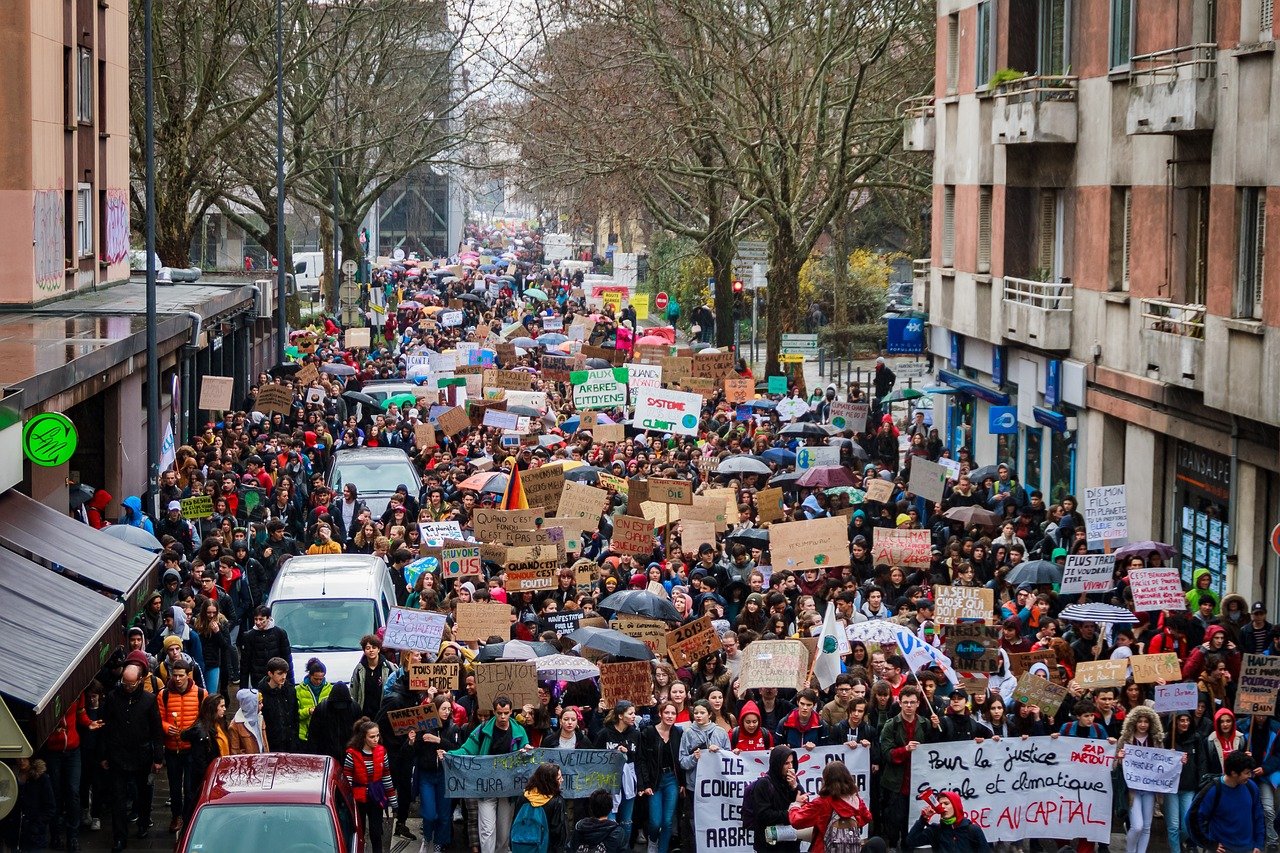Representation matters. Seeing ourselves reflected in media, leadership, and various facets of society isn’t just about feeling good – it’s fundamental to building a more equitable and inclusive world. From sparking aspirations to challenging stereotypes, the power of representation can’t be overstated. But what does genuine representation truly entail, and why is it so crucial for individual and societal well-being? Let’s delve into the multifaceted importance of representation and explore its impact.
Understanding Representation
Defining Representation
Representation, in its simplest form, is the act of portraying or serving as a symbol or embodiment of something else. In the context of society, it refers to the accurate and authentic portrayal of diverse groups of people in media, politics, arts, and other areas. This includes, but is not limited to, representation of different:
- Races and ethnicities
- Genders and sexual orientations
- Abilities and disabilities
- Socioeconomic backgrounds
- Religions and cultures
Genuine representation goes beyond surface-level diversity and delves into portraying the complexities and nuances of different lived experiences.
Why Representation is Important
The importance of representation stems from its profound impact on individuals and society as a whole. Here’s why it matters:
- Validation and Belonging: Seeing oneself reflected in media and leadership validates one’s existence and fosters a sense of belonging. This is particularly crucial for marginalized communities who may feel invisible or excluded.
- Role Models and Aspiration: Representation provides role models for individuals to look up to, inspiring them to pursue their dreams and aspirations. For example, a young girl seeing a female scientist in a movie might be more likely to consider a career in STEM.
- Challenging Stereotypes: Authentic representation can challenge harmful stereotypes and biases by showcasing the diversity and complexity of different groups of people. It allows for a more nuanced understanding of different cultures and experiences.
- Promoting Empathy and Understanding: By exposing people to different perspectives and experiences, representation can foster empathy and understanding between different groups. This can lead to more inclusive and harmonious communities.
- Empowerment and Advocacy: When marginalized groups are represented in decision-making roles, their voices are heard and their needs are considered. This can lead to policies and initiatives that better serve their communities.
Representation in Media
The Power of Visual Representation
Media plays a significant role in shaping our perceptions of the world. When marginalized groups are consistently portrayed in stereotypical or negative ways, it can reinforce harmful biases and prejudices. Conversely, positive and authentic representation can challenge these stereotypes and promote a more nuanced understanding.
For example, the portrayal of LGBTQ+ characters in television shows has evolved significantly over the years. Initially, LGBTQ+ characters were often depicted as caricatures or comedic relief. However, more recent shows like “Pose” and “Orange is the New Black” have featured complex and nuanced LGBTQ+ characters with their own storylines and perspectives. This type of representation can help normalize LGBTQ+ identities and foster greater acceptance and understanding.
The Bechdel Test and Beyond
The Bechdel Test, a simple measure of the representation of women in fiction, highlights the lack of meaningful female characters in many movies and TV shows. To pass the Bechdel Test, a work must feature:
- At least two named female characters
- Who talk to each other
- About something other than a man
While the Bechdel Test is a useful starting point, it’s important to go beyond it and consider the depth and complexity of female characters, as well as the representation of women from diverse backgrounds.
Behind-the-Scenes Representation
Representation is not only important on screen, but also behind the scenes. Having diverse writers, directors, producers, and crew members can ensure that stories are told from authentic perspectives. Initiatives like the Directors Guild of America’s diversity programs aim to increase representation in the film and television industry.
Representation in Politics and Leadership
The Importance of Diverse Leadership
Having diverse representation in politics and leadership positions is crucial for ensuring that the needs and perspectives of all communities are considered. When marginalized groups are not represented in leadership, their voices are often ignored and their needs are overlooked.
For example, studies have shown that having women in leadership positions can lead to more inclusive policies and initiatives. Women are more likely to prioritize issues such as childcare, parental leave, and equal pay, which can benefit families and communities as a whole.
Overcoming Barriers to Political Representation
There are many barriers that prevent marginalized groups from accessing political power, including:
- Discrimination and bias
- Lack of access to resources and networks
- Systemic inequalities
Addressing these barriers requires a multi-faceted approach, including:
- Campaign finance reform
- Voter education and registration
- Mentoring and leadership development programs
Examples of Progress in Political Representation
While there is still much work to be done, there have been some notable examples of progress in political representation in recent years. The election of Kamala Harris as the first female Vice President of the United States is a significant milestone for women and people of color. Similarly, the increasing number of LGBTQ+ politicians being elected to office is a sign of progress towards greater inclusion.
The Economic Impact of Representation
Diversity and Innovation
Studies have consistently shown that companies with diverse workforces are more innovative and profitable. This is because diverse teams bring a wider range of perspectives and experiences to the table, leading to more creative problem-solving and better decision-making.
For example, a study by McKinsey found that companies in the top quartile for gender diversity are 21% more likely to outperform on profitability, and companies in the top quartile for racial and ethnic diversity are 33% more likely to have above-average profitability.
Reaching Diverse Markets
Representation is also crucial for reaching diverse markets. When companies understand and reflect the diversity of their customer base, they are better able to develop products and services that meet their needs. This can lead to increased sales and brand loyalty.
For instance, beauty brands that offer a wide range of shades to match different skin tones are more likely to attract customers from diverse racial and ethnic backgrounds. Similarly, advertising campaigns that feature diverse models and actors are more likely to resonate with a wider audience.
Creating Inclusive Workplaces
Creating inclusive workplaces where all employees feel valued and respected is essential for attracting and retaining talent. This includes providing opportunities for professional development, promoting work-life balance, and addressing issues of discrimination and bias. Companies that prioritize diversity and inclusion are more likely to have a positive employer brand and attract top talent.
Taking Action for Better Representation
Supporting Diverse Content Creators
One of the most effective ways to promote better representation is to support diverse content creators. This includes:
- Watching and sharing movies, TV shows, and other media created by people from marginalized communities.
- Following and supporting diverse artists, writers, and musicians on social media.
- Attending events and performances that showcase diverse talent.
Demanding Accountability from Media and Leadership
It’s also important to hold media and leadership accountable for their representation of different groups. This can include:
- Contacting companies and organizations to express concerns about lack of diversity.
- Boycotting products and services from companies that engage in discriminatory practices.
- Supporting organizations that advocate for greater representation.
Promoting Diversity and Inclusion in Your Own Community
Finally, it’s important to promote diversity and inclusion in your own community. This can include:
- Supporting local businesses owned by people from marginalized communities.
- Volunteering at organizations that serve diverse populations.
- Educating yourself about different cultures and perspectives.
- Challenging prejudice and discrimination when you see it.
Conclusion
Representation is not just a buzzword – it’s a fundamental human right. Seeing ourselves reflected in media, leadership, and various facets of society validates our existence, fosters a sense of belonging, and inspires us to pursue our dreams. While progress has been made in recent years, there is still much work to be done to ensure that all communities are accurately and authentically represented. By supporting diverse content creators, demanding accountability from media and leadership, and promoting diversity and inclusion in our own communities, we can create a more equitable and just world for all. The power to shape a future where everyone feels seen and valued lies within each of us.




